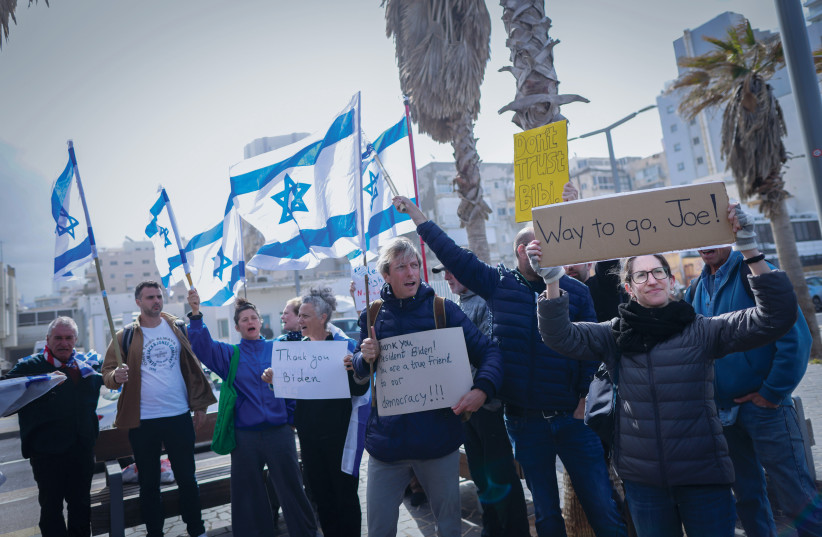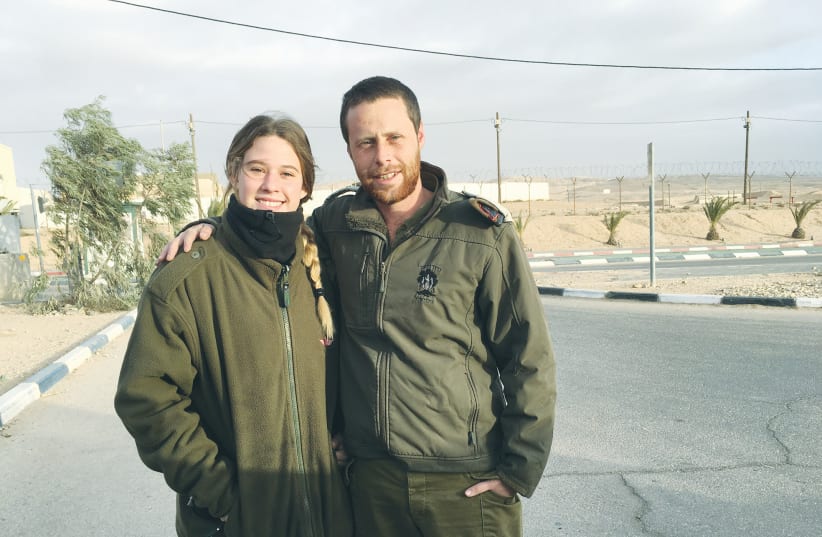My American friends marched in the women’s marches, and I marched with them. When I was in high school, Donald Trump was elected. My friends and I, despite being teenagers, felt the gravity of the political moment. Standing among the crowds of like-minded women, we weren’t mere bystanders; we became vocal advocates for human rights and women’s rights, marching and amplifying our beliefs on social media.
Little did I know that those friends would turn a blind eye when the atrocities of October 7 impacted me on a personal level and that I would no longer feel as though we were in this together.
Unable, as a non-citizen, to cast a vote in the American presidential elections, I stood in solidarity with those who fought against the threats to liberal values and equality.
Yet, on October 7 and the days that followed, I was truly hurt by many of my American friends. Many didn’t reach out to see how I was doing and way too quickly were posting infographics justifying the killing of my people, all over social media.
When I say “my people” that sounds like a very general term. I literally mean my people. I lost friends and family that day.


My cousin Maj. Moti Shamir was killed on October 7 while saving innocent civilians from being massacred. The day of his funeral was the hardest day of my life. My heart absolutely broke from the realization of the horrible atrocities that took place. Unfortunately, my heart further broke when I opened social media.
Antisemitism on social media
The virtual space I once turned to for distraction turned into a battleground of antisemitic sentiments. Former friends, individuals with whom I once felt a sense of belonging in California, now propagated ideas that forced me to reevaluate those connections. Social media, once a fun escape, transformed into a constant reminder of the deep divide between the values I hold dear and the painful reality of entrenched prejudice.
Dishearteningly, the response from some of my American friends to the atrocities was silence. The lack of outreach inquiring about my well-being compounded the hurt. What stung even more was witnessing a surge of social media posts attempting to justify the tragedy, betraying a shocking insensitivity to the loss of lives in my community.
The alarming question lingered: How could those who had marched beside me for liberal values, equality, and women’s rights now turn a blind eye to the suffering of my people? The dissonance between shared principles and the glaring absence of support left me grappling with the unsettling realization that, in certain circles, our common humanity was overshadowed by the toxic taint of discrimination.
In navigating these turbulent times, my refuge became the need to distance myself from the very platforms and individuals that once provided solace. The toll on my mental health was undeniable, forcing me to redefine the boundaries of friendship and confront the painful truth that, sometimes, the fight for justice comes with unexpected casualties in the form of fractured relationships.
I acknowledge that some readers may already have preconceived notions or defensive reactions as they read my words. I’d like to point out the fact that I haven’t delved into any political aspects regarding Israel; rather, I’ve shared a personal account of the most challenging days of my life.
Transporting myself back to my days as a California teen during politically charged times, I understand how many Americans perceive the situation in stark black-and-white terms. The combination of white guilt and the increasing influence of cancel culture leaves little space for nuanced, critical thinking. I am confident that if any of my friends from California were to spend a few days in Tel Aviv, they would recognize the biases shaping their perspectives. However, somewhere between Tel Aviv and California, the authenticity of the situation gets lost in translation.
To anyone reading this who is not Jewish or Israeli: I can tell you that lately, your Israeli friends often feel unseen, discriminated against, and betrayed. I implore you to reach out, whether by messaging or making a call, to one of your Israeli or Jewish friends and ask about their well-being. Such small gestures can make a world of difference to us, fostering understanding and bridging the gaps created by misconceptions.
The writer, an IDF veteran and final-year international relations student in the Argov honors program at Reichman University, was born in Israel and raised in California, and is fueled by a passion for human rights and women’s rights.
